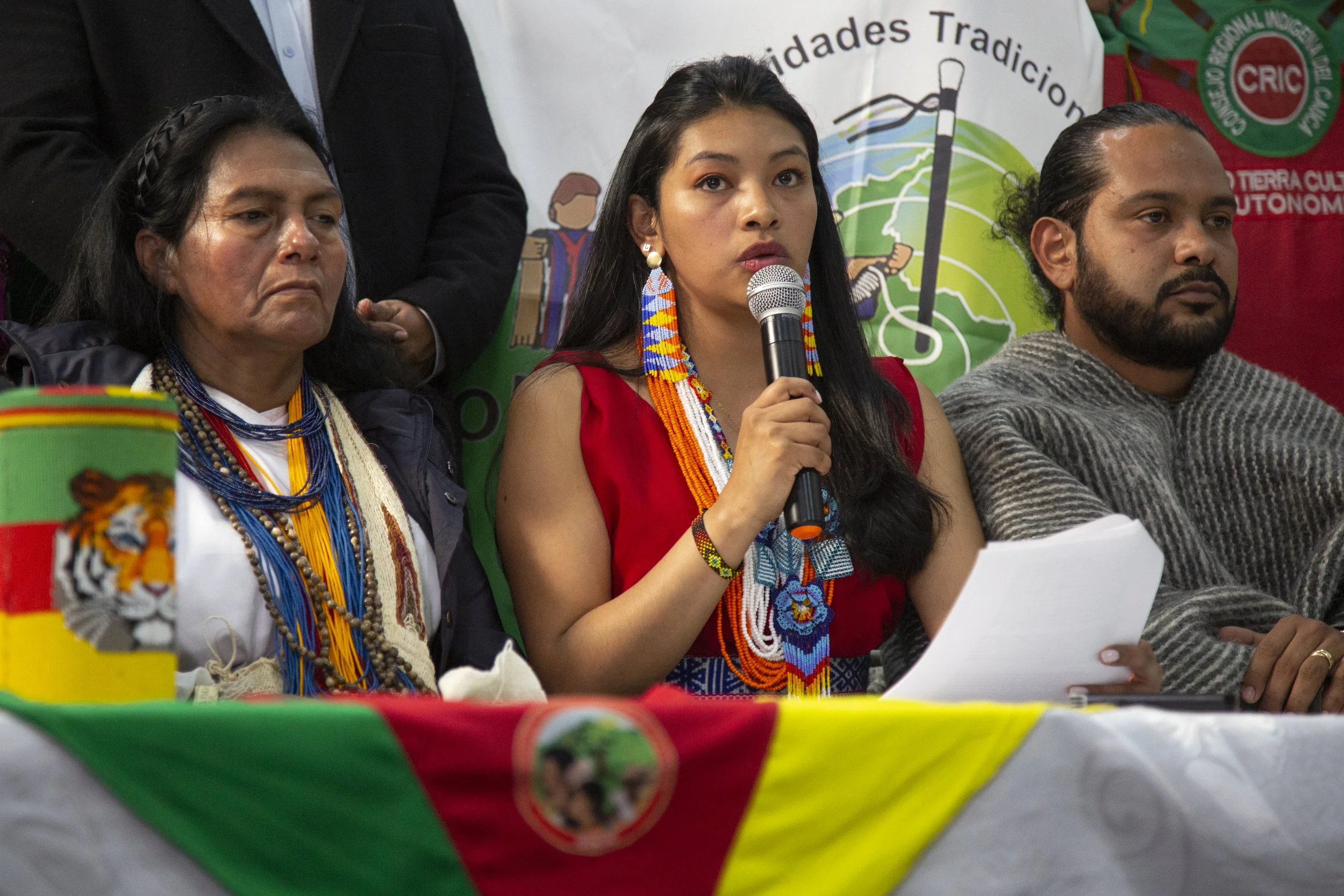National Indigenous Movement maintains permanent assembly in response to grave human rights violations
March 17, 2023, originally published in El cuarto Mosquetero
This morning, ahead of the afternoon’s scheduled meeting with President Gustavo Petro, Colombia's National Indigenous Movement summoned the press to decry the breach of agreements by his administration.
Pending the results of the afternoon’s dialogue, they indicated that they are willing to enter into demonstrations.
Since March 16, the organizations that conform the National Indigenous Movement declared themselves to be in a permanent assembly “with the objective of evaluating and defining actions against the systematic and widespread non-compliance of the current National Government with respect to the agreements signed to date,” according to a press release from the Colombian National Indigenous Organization (ONIC).
During the morning’s press conference held at the ONIC headquarters, a new statement was released demanding compliance with the agreements reached with Indigenous nations during the prior consultation phase of the drafting of the new administration’s National Development Plan. The comunique denounced "serious and systematic" human rights violations against these populations caused mainly by armed conflicts that plague their territories.
According to figures from the ONIC Human Rights Observatory, 2022 was the most violent year for indigenous people since 2016, with 453,018 cases of human rights violations, including confinement, forced displacement and harassment. The Institute for Development and Peace Studies (Indepaz) has registered five murders of indigenous leaders so far this year.
In this past week alone in the Çhab Wala Kiwe territory of the Nasa people, the Association of Indigenous Councils of Northern Cauca denounced at least five homicides, three threats, an attack and the destruction of a sacred site.
The human rights violations suffered by these communities take various forms. According to the ONIC, "the most common attacks by armed groups are threats, confinement, murder, forced recruitment, displacement, rape, illicit crops, deforestation, illegal mining, and contamination with residues and heavy metals.”
Faced with these conditions, the ONIC, which represents 115 nations, stated today that "we express our permanent and unwavering will to continue with constructive, purposeful and transformational dialogue, but we do not renounce mobilization."
